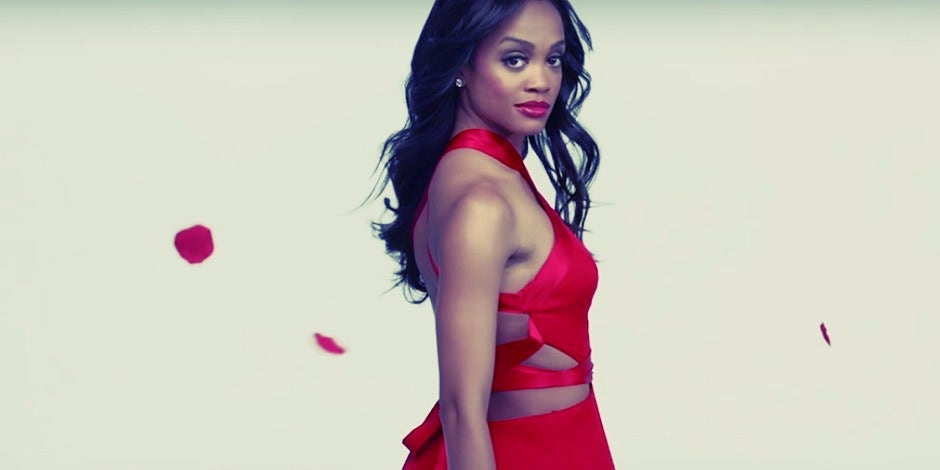Why The First Black 'Bachelorette' Is Actually More Problematic Than Progressive
Let's be honest.
 YouTube
YouTube The Bachelor and The Bachelorette have beat out every other attempt at dating reality shows.
It’s the drama, the beautiful people, the dream dates — both shows are addicting at best.
It’s been 14 years since the first airing of The Bachelorette (15 since The Bachelor), so why are we suddenly so up-in-arms about the contestants of this new season?
After 13 seasons, we have Rachel Lindsay, our first African-American Bachelorette.
When I first heard the news, I was excited. Awesome! Representation on one of the country's most popular shows, what could be wrong about that?
But it’s turned out to be far more problematic than most of us originally thought.
Yes, representation is so important, but what happens when the representation actually hurts instead of helps?
This season’s contestants on The Bachelorette are the most diverse group of men in the history of the show and yet, out of the 31 men, only 11 of them are black.
Even with the addition of people of color, the show still resembles a life of luxury that, systematically, is geared towards upper-middle class, white America.
If we ignore how we have socialized different types of people, this new Bachelorette season doesn’t have any obvious issues.
BUT we can’t ignore the way class, race, standards, and expectations all intersect and affect the way we view people, especially women.
Robin M. Boylorn shares a similar idea in her article “Black, Single, and Waiting”:
“The franchise reinforces the patriarchal premise that heterosexual men want to be with women who 'need' them, and heterosexual women desire men who can “take care” of them — a dynamic that is complicated by race and class, and has particular implications for women of color who can take care of themselves or don’t have the luxury of waiting to be rescued.”
The Bachelor and The Bachelorette have a history with racism within their shows, and it’s clear they’re trying to erase the stereotype that they’ve created over the last 15 years.
Rachel Lindsey has very big shoes to fill — she has to become an equalizer between white people and people of color.
This basically means she has to remain loved by the black community, i.e. represent black women in a positive light, while also being approachable to white people who are dipping their toes into understanding why it’s important to have diverse friends of all races.
That’s A LOT to put on one woman’s plate.
The real issue is not Rachel Lindsey, she really just wants to meet the man of her dreams. The problem is they picked an African-American Bachelorette in the hopes that it would widen the diversity of their viewers, while still satisfying their white viewers.
There are black women who see themselves in Rachel Lindsey, and that is amazing. But there are also black women who look at Rachel Lindsey and see a life that they will never have.
They are missing the culture that ACTUALLY diversifies, not just color.
As NPR’s Eric Deggans stated on the topic of the newly diversified Bachelorette season:
“True diversity isn't just about expecting black people to assimilate into a mostly white world; it's about widening that world to reflect the experiences of everyone in it.”
I truly have hope for this new, diverse setting that The Bachelorette is trying to create. I don’t mean to diminish the seriousness of trying to diversify our mainstream media. We very much so NEED to bring in people of color to shows like this.
BUT it is important to acknowledge that it hasn’t been the most foolproof attempt, and it hasn’t started some revolution or solved the race crisis in America.
As the seasons progress, I hope to see the continuation of diverse people included in the cast and, hopefully, that representation will start moving the show towards a wider scope of experiences and culture. Because this season is a start, but, more than anything, it casts a stark light on just how far The Bachelorette has to go to be truly representative.

